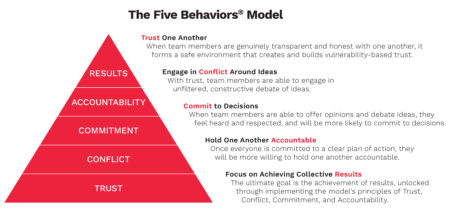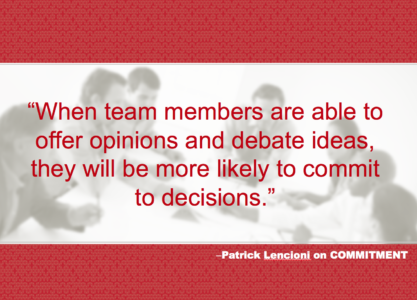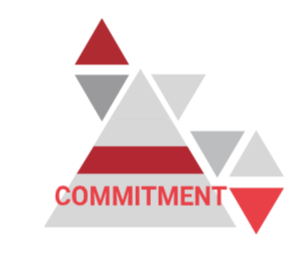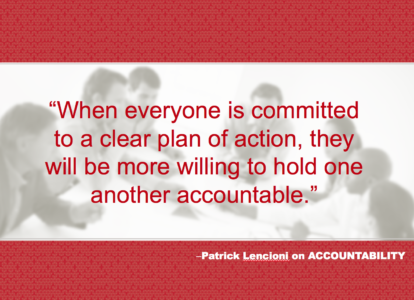What Makes a Great Team Player?
 The greatest indicator of great team players is their ability to engage in behaviors that are thoughtful, respectful and promote collaboration. Skills alone don’t cut it. It’s about creating and supporting a cohesive environment.
The greatest indicator of great team players is their ability to engage in behaviors that are thoughtful, respectful and promote collaboration. Skills alone don’t cut it. It’s about creating and supporting a cohesive environment.
CASE of an Unaware Senior Director of Operations: On paper, Greg has high potential as Senior Director of Operations within a Fortune 500 technology company. His manager is concerned that Greg’s team is experiencing low morale. After interviewing Greg’s direct reports, it became obvious that Gregs’s communication style had eroded trust within the team. Team members complained of shifting priorities and that ‘Greg’s way is always the right way’. No longer were team members offering feedback during meetings because they knew it didn’t matter what they said. It would always be Greg’s idea so why even try to offer another opinion.
When Greg learned of the feedback from his team, he was crushed. He had absolutely no idea that this is how his team felt. It would take a lot of work for him to build back trust with the team.
Solution: Greg wanted to bring the team together to discuss their concerns and to begin a process of understanding how his behaviors were causing dysfunction within the team. Using the Five Behaviors of a Cohesive Team assessment, the team was able to explore their perceptions of how the team was performing across the Five Behaviors: Building Trust, Managing Conflict, Gaining Commitment, Holding One Another Accountable, and supporting Collective Results.
Based on Patrick Lencioni’s best-selling book, The Five Dysfunctions of a Team, the Five Behaviors of a Cohesive Team provides team members with insight into their communication preferences based on Everything DiSC AND how the Five underlying behaviors impact team communication, collaboration, and results. Greg’s team was able gain insight into the different DiSC styles and how they impact the underlying behaviors essential to building cohesive teams. Greg’s initial key takeaway was to ‘listen to his team’ without judgment, consider their input, and explore other options rather than continuing with ‘Greg’s way is the only way’. Change doesn’t happen overnight but the team was able to build the start of a new foundation of understanding and respect.
 How do the Five Behaviors Drive Team Cohesion?
How do the Five Behaviors Drive Team Cohesion?
Building Trust
The first and foundational behavior of a cohesive team is trust. Although many people think of trust as the ability to predict a person’s behavior based on past experience, that’s not what we’re talking about here. Rather, in the context of a cohesive team, trust means: a willingness to be completely vulnerable with one another—to let down our guard, admit our flaws, and ask for help.
Mastering Conflict
 By building trust, a team transforms conflict into something powerful and constructive. Team members feel safe engaging in passionate and sometimes emotional debate, knowing that they will not be punished or resented for saying something that might otherwise be interpreted as destructive or critical.
By building trust, a team transforms conflict into something powerful and constructive. Team members feel safe engaging in passionate and sometimes emotional debate, knowing that they will not be punished or resented for saying something that might otherwise be interpreted as destructive or critical.
Conflict is often considered taboo, especially at work, and people may spend inordinate amounts of time and energy trying to avoid the kind of passionate debates that are essential to any great team.
Teams that are willing to engage in productive conflict resolve issues and create the best possible solutions in the shortest period of time. By productive conflict we mean: debate that is focused on concepts and ideas and avoids mean-spirited, personal attacks.
Achieving Commitment
By engaging in productive conflict and tapping into team members’ perspectives and opinions, a team can confidently commit and buy in to a decision, knowing that they have benefited from everyone’s ideas.
 If team members don’t commit, they’re just half-heartedly going along with decisions, which means they’re unlikely to have the kind of alignment necessary to reach their goals. In the context of a cohesive team, commitment is: clarity around decisions and moving forward with complete buy-in from every member of the team, even those who initially disagreed with the decision.
If team members don’t commit, they’re just half-heartedly going along with decisions, which means they’re unlikely to have the kind of alignment necessary to reach their goals. In the context of a cohesive team, commitment is: clarity around decisions and moving forward with complete buy-in from every member of the team, even those who initially disagreed with the decision.
Embracing Accountability
 In order for teammates to call each other on their behaviors and actions, they must have a clear sense of what is expected. Even the most ardent believers in accountability usually balk at having to hold someone accountable for something they never agreed or committed to in the first place.
In order for teammates to call each other on their behaviors and actions, they must have a clear sense of what is expected. Even the most ardent believers in accountability usually balk at having to hold someone accountable for something they never agreed or committed to in the first place.
Accountability has become a buzzword—so overused and with so many different interpretations that it has lost much of its meaning. In the context of teamwork, however, accountability is: the willingness of team members to call their peers on performance or behaviors that might hurt the team.
Focusing on Results
 If teammates are not being held accountable for their contributions, they will be more likely to turn their attention to their own needs and to the advancement of themselves or their departments. An absence of accountability is an invitation to team members to shift their attention to areas other than collective results.
If teammates are not being held accountable for their contributions, they will be more likely to turn their attention to their own needs and to the advancement of themselves or their departments. An absence of accountability is an invitation to team members to shift their attention to areas other than collective results.
The ultimate goal of encouraging trust, conflict, commitment, and accountability is to achieve results. And yet, as it turns out, one of the greatest challenges to team success is inattention to results. In the context of a cohesive team, results refer to: the collective goals of the team; they are not limited to financial measures but are more broadly related to expectations and outcome-based performance.

Contact us to learn more about the Five Behaviors Model and the positive impact it has for teams
